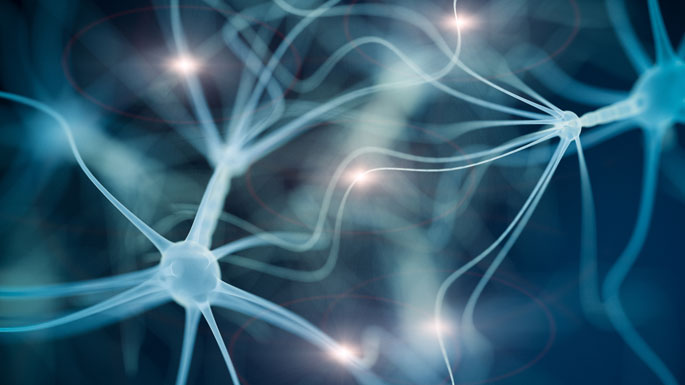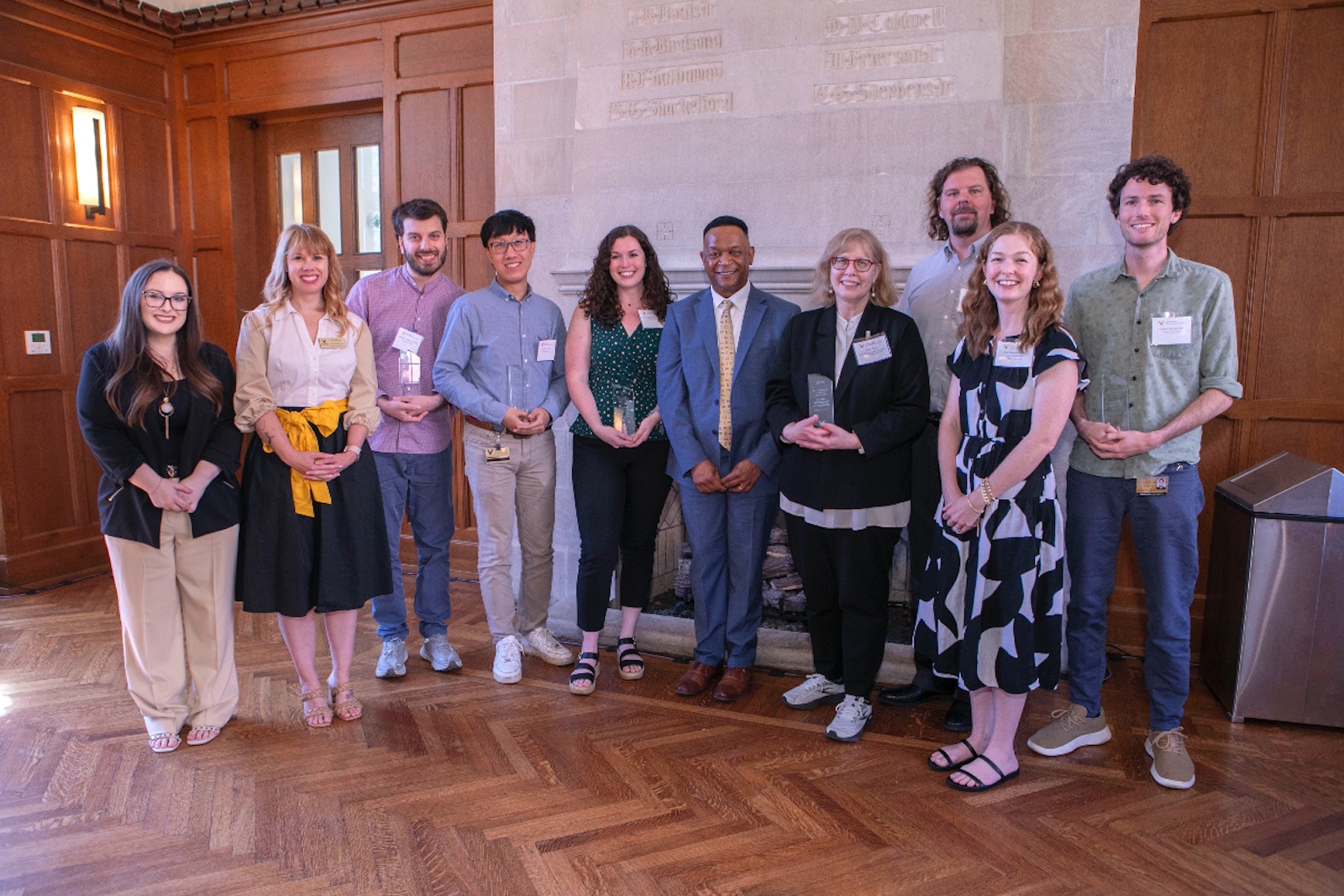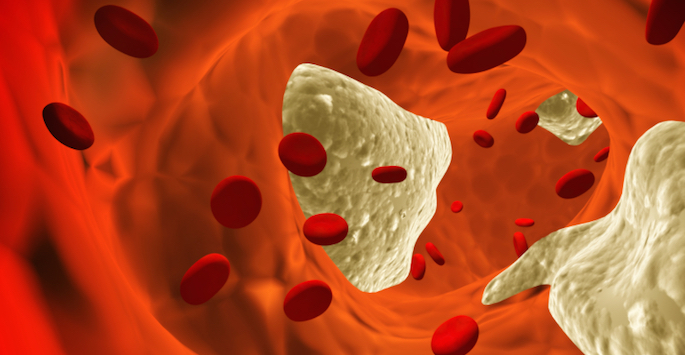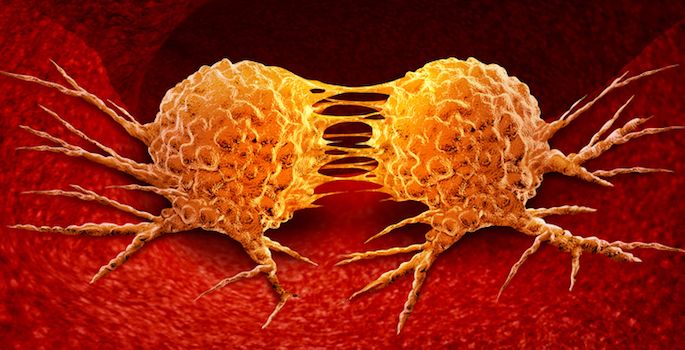Department Of Pharmacology
-

Targeting immune suppression to overcome melanoma resistance
For patients with advanced melanoma without BRAF mutation who no longer respond to immune checkpoint inhibitors, treatment options remain frustratingly limited. A new study from Vanderbilt researchers led by Professor Emerita of Pharmacology Ann Richmond outlines a promising therapeutic strategy that may re-sensitize these resistant tumors to immunotherapy. Read MoreFeb 26, 2026
-

A more realistic way to study cocaine use could accelerate addiction research
Research into combating cocaine addiction has been limited by the difficulty in structuring accurate animal models; standard practice relies on implanting IV catheters that the animals can use to self-dose. Now Assistant Professor Cody Siciliano's lab has devised a method that more closely mimics cocaine use in humans—effectively, a way for the animals to snort cocaine. This makes the animal model more analogous to human experience, and it reduces surgical and intravenous procedures for the animals. "This model provides a powerful framework for linking motivated drug use with real-time neural activity, offering new opportunities to study the circuitry underlying reinforcement and decision-making," Siciliano said. Read MoreJan 30, 2026
-

Pharmacologist Shan Meltzer receives Edward Mallinckrodt, Jr. Foundation Award to uncover how our sense of touch and pain develops
Shan Meltzer has been awarded a prestigious Edward Mallinckrodt, Jr. Foundation Award to advance her pioneering research that seeks to determine how the body’s sensory circuits form and function. Her work seeks to answer a fundamental question in neuroscience: how do the brain and spinal cord organize their intricate networks to perform such a wide range of functions? Read MoreNov 13, 2025
-

Quynh Anh Nguyen awarded prestigious Klingenstein Fellowship to study mechanisms of epilepsy
Quynh Anh Nguyen, assistant professor of pharmacology, is the first Vanderbilt faculty member to be awarded the highly competitive Klingenstein Fellowship in Neuroscience since 1985. Her research aims to unravel the mysteries of epilepsy by focusing on how specific cells in the brain contribute to or suppress the hyperexcitability in neural circuits that are thought to be involved in the disorder’s spontaneous seizures. Read MoreJul 10, 2025
-

Vanderbilt postdoctoral fellows recognized at 2025 Spring Postdoc Awards Ceremony
The Office of Postdoctoral Affairs, in partnership with the Vanderbilt Postdoctoral Association, announced the 2025 award winners at the Spring Postdoc Awards Ceremony on May 21. The event highlighted the vital contributions that postdocs make across various disciplines at the university. Read MoreJun 17, 2025
-

New ketamine study promises extended relief for depression
In a new study published in Science, Lisa Monteggia’s and Ege Kavalali’s labs show that it is feasible to substantially extend the efficacy of a single dose of ketamine from its current duration of up to a week to a longer period of up to two months. Read MoreJun 12, 2025
-

Quantum Potential Podcast Episode 8: Rewiring the brain and rethinking pain with Craig Lindsley
In this episode of Quantum Potential, Craig Lindsley, William K. Warren, Jr. Professor of Medicine, University Distinguished Professor of Biochemistry, Chemistry and Pharmacology and executive director of the Warren Center for Neuroscience Drug Discovery, joins Provost C. Cybele Raver to discuss transformative research exploring how subtle tweaks to brain chemistry could change the way we treat neurodegenerative diseases and chronic pain. Read MoreMay 28, 2025
-

Quantum Potential Podcast Episode 4: Behind the brain science of addiction with Erin Calipari
What does the way we learn have to do with drug addiction? In our fourth episode, Erin Calipari, associate professor of pharmacology and director of the Vanderbilt Center for Addiction Research, joins Provost C. Cybele Raver for an enlightening conversation. In this episode, they discuss nucleus accumbens—the part of our brain that helps us link cues and outcomes—and dissect how it affects the ways we make decisions that can lead to addictions, from food or drugs to behaviors. Read MoreMar 27, 2025
-

Study uncovers significant differences in a dietary supplement’s key ingredient
A recent study by Paula Luis and Claus Schneider, researchers in the Vanderbilt University School of Medicine Basic Sciences Department of Pharmacology and the Vanderbilt Institute of Chemical Biology, has uncovered substantial inconsistencies in the alkaloid content of Corydalis yanhusuo dietary supplements. Read MoreMar 26, 2025
-

Live. Learn. Lead. Symposium 2025 highlights leadership, resilience and community
Big ideas, bold leadership and lessons in resilience took center stage at this year’s Live. Learn. Lead. Symposium. From a four-star general’s wisdom to hands-on student leadership, here’s what you missed. Read MoreMar 26, 2025
-

Inaugural cohort of faculty fellows elevates Immersion Vanderbilt
Immersion Vanderbilt, now in its third year as a graduation requirement, consistently provides students with the opportunity to pursue a variety of in-depth experiences and independent projects. Students align their immersion projects with their interests—whether those are artistic, research-oriented, career-focused, globally aimed or community-engaged. Faculty from all 10 schools and colleges support students’ goals and ambitions within immersion, and this year, that support is enhanced by a new cohort of 10 Immersion Faculty Fellows who are supported by Undergraduate Education in the Office of the Provost. Read MoreJan 16, 2025
-

Staff members honored for excellence in research, service during 2024 Fall Staff Assembly
Chancellor Daniel Diermeier and Vice Chancellor of People, Culture and Belonging Sydney Savion presented awards at the 2024 Fall Staff Assembly to a mix of inspiring individuals and teams who have made significant contributions through their community engagement, innovation and leadership. Read MoreNov 18, 2024
-

Erin Calipari wins Society for Neuroscience 2024 Outstanding Career and Research award
Erin Calipari, director of the Vanderbilt Center for Addiction Research and associate professor of pharmacology and molecular physiology and biophysics, has been recognized with the Society for Neuroscience’s 2024 Jacob P. Waletzky award. Read MoreOct 3, 2024
-

Chancellor announces 2024 Faculty Fellows, grants $40,000 per year to support scholarship and research
Thirteen outstanding faculty members from across the university have been selected for the 2024 cohort of Chancellor Faculty Fellows. This group is composed of highly accomplished, recently tenured faculty from a wide variety of disciplines and areas of expertise. Read MoreJun 11, 2024
-

New structures offer insight into how a bacterial motor powers bacterial chemotaxis, a key infectious process
The lab of Tina Iverson, Louise B. McGavock Professor and professor of pharmacology, in collaboration with researchers at the University of California, San Francisco; Stanford University; and The Weizmann Institute of Science in Israel have published new work in Nature Microbiology, providing new insights on chemotaxis. Read MoreApr 22, 2024
-

‘Molecular Muse’ exhibit features Artist-in-Residence program’s science-inspired art
The “Molecular Muse” art exhibit on display in Light Hall is a sampling of pieces from the Vanderbilt Institute for Infection, Immunology, and Inflammation Artist-in-Residence (VI4-AiR) program, which brings together scientists and artists to create and promote art as a visual science communication tool. Read MoreJan 16, 2024
-

Potential protection from atherosclerosis
Vanderbilt researchers have discovered a potential way to reduce atherosclerosis: blocking the modification of an HDL-associated enzyme by reactive molecules called isolevuglandins. Read MoreAug 19, 2021
-

Nature’s “recycler” could reduce heart disease risk: study
Researchers at Vanderbilt University Medical Center have identified potential new targets for the prevention of atherosclerosis through the enhancement of autophagy, a natural process for recycling damaged cellular material. Read MoreJul 8, 2021
-

Personalized Structural Biology aids cancer treatment decisions
Cancer specialists at Vanderbilt University Medical Center, in partnership with biochemists and structural biologists across the Vanderbilt University campus, are taking “personalized” cancer therapy to a new level. Read MoreApr 8, 2021
-

Cohen Fund bolsters Siciliano’s memory research
Cody Siciliano, PhD, assistant professor of Pharmacology in the Vanderbilt University School of Medicine, has been selected to receive a one-year, $100,000 research award from the Stanley Cohen Innovation Fund to support his studies of the neural substrates of memory. Read MoreSep 24, 2020